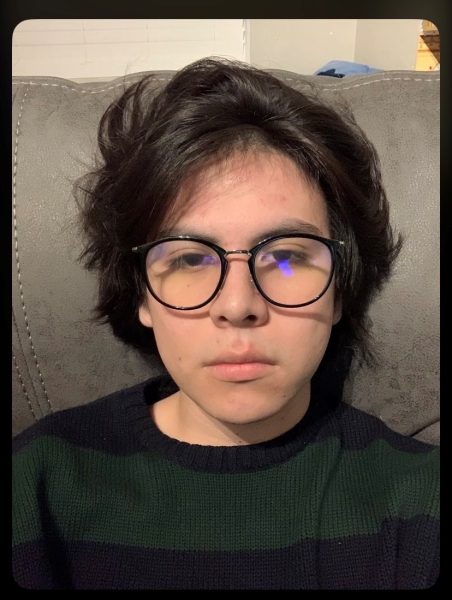Andrew Villanova left, Aidan Barlow right
In a passionate and wide-ranging debate held in Building 13, 1700 on Tuesday students took on the hot-button issue of book censorship in K–12 schools, debating whether banning certain texts protects students — or limits their growth.
Two students each representing different organizations led the charge of the debate. Mt. SAC’s Philosophy Club’s Andrew Villanova, argued against the censorship of certain books in K-12 schools, while Mt. SAC Speech and Debate team member Aidan Barlow defended it, or at least, supported a more cautious approach.
“The purpose of K–12 education is to prepare students for college-level, adult-level education, to be able to contend with the real world,” Villanova said during his opening remarks. “Restricting books like that won’t prepare them for what’s in front of them.”
Villanova’s stance was rooted in the belief that students should be exposed to a broad spectrum of ideas, even ones deemed offensive or harmful, to develop critical thinking skills. “There are books that teach things like eugenics,” Villanova acknowledged. “But being exposed to books like that is actually a good thing … it allows students to understand those viewpoints so they can contend with them and counter them as they enter college.”
Barlow, however, pushed back, raising concerns about age appropriateness and emotional maturity.
“For some people, they may not have the emotional maturity or the critical thinking to digest a book like that,” he said. “They may take it at face value, and especially at a young age or without a trusted adult, they might fall in line with those ideologies.”
Throughout the hour-long discussion, the two students fielded questions from the audience which added depth and nuance to their arguments. One question from an audience member challenged Barlow on the idea of parental oversight, noting that many low-income or non-English-speaking parents may not have the time or resources to influence what’s taught in their child’s school.
Barlow acknowledged the concern but framed it as a larger systemic issue. “Those parents might have some peace of mind knowing that books with such extreme ideologies aren’t easily accessible to their children,” he said.
Villanova, in response, argued that limiting access based on a single group’s values can have dangerous consequences saying that, “In a community that has majority one-sided beliefs, it would be very easy for them to democratically vote to wipe out books from a different political side,” he said. “That’s a potential side effect of censorship.”
Assistant Director of Mt. SAC’s Writing Center and event moderator Nicole Blean helped facilitate the discussion while Professor of Communications and Director of Debate and Speech Danny Cantrell relayed questions from the audience to the speakers, which ranged from the ethics of exposure to disturbing content to the freedom of students to explore controversial ideas.
“Freedom doesn’t necessarily mean doing what you want,” one audience member remarked. “It also means the freedom not to have your freedom painted by someone else’s freedom.”
By the end of the debate, audience members were asked to vote on which side presented a more compelling argument. Villanova, speaking against censorship, won the crowd’s support.
For Mt. SAC students, it was a chance to confront difficult questions head-on with curiosity, respect and conviction.



